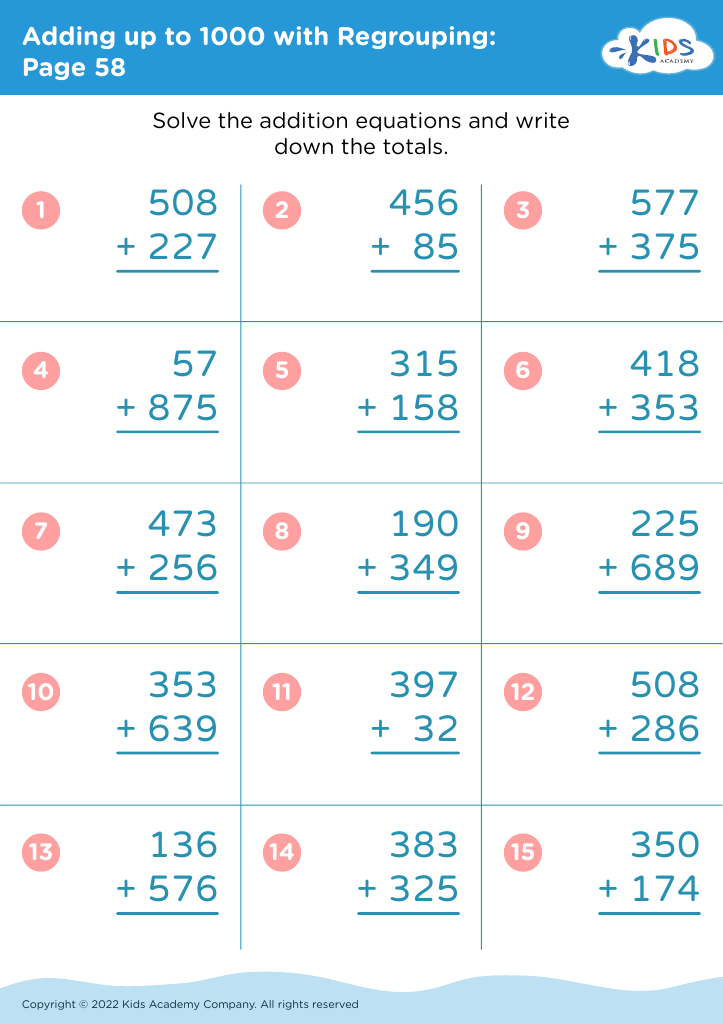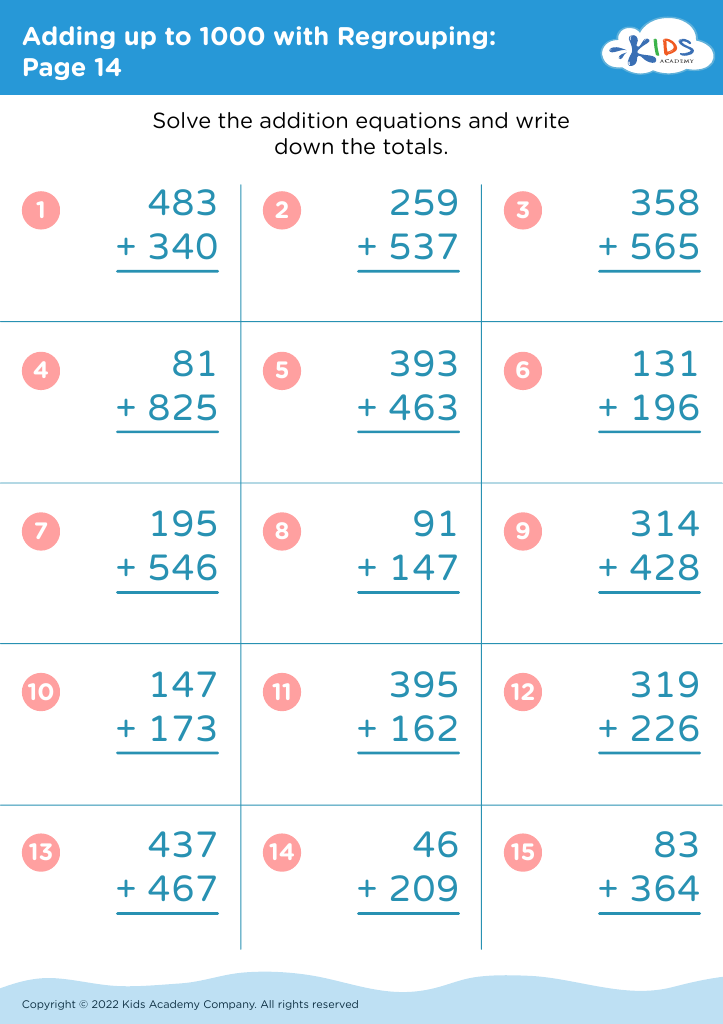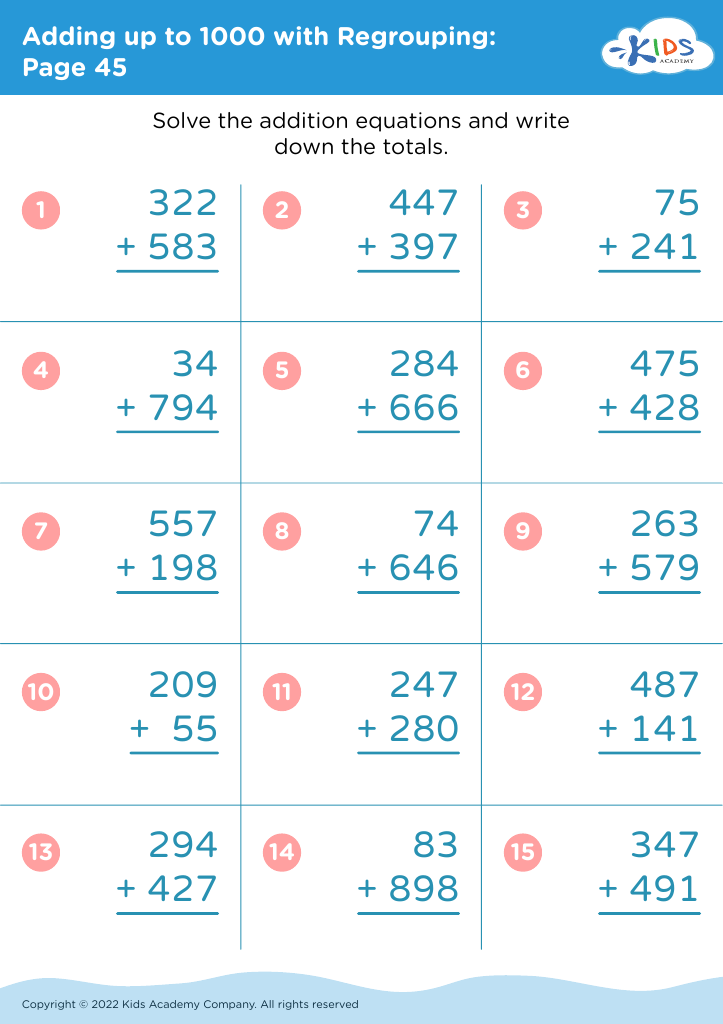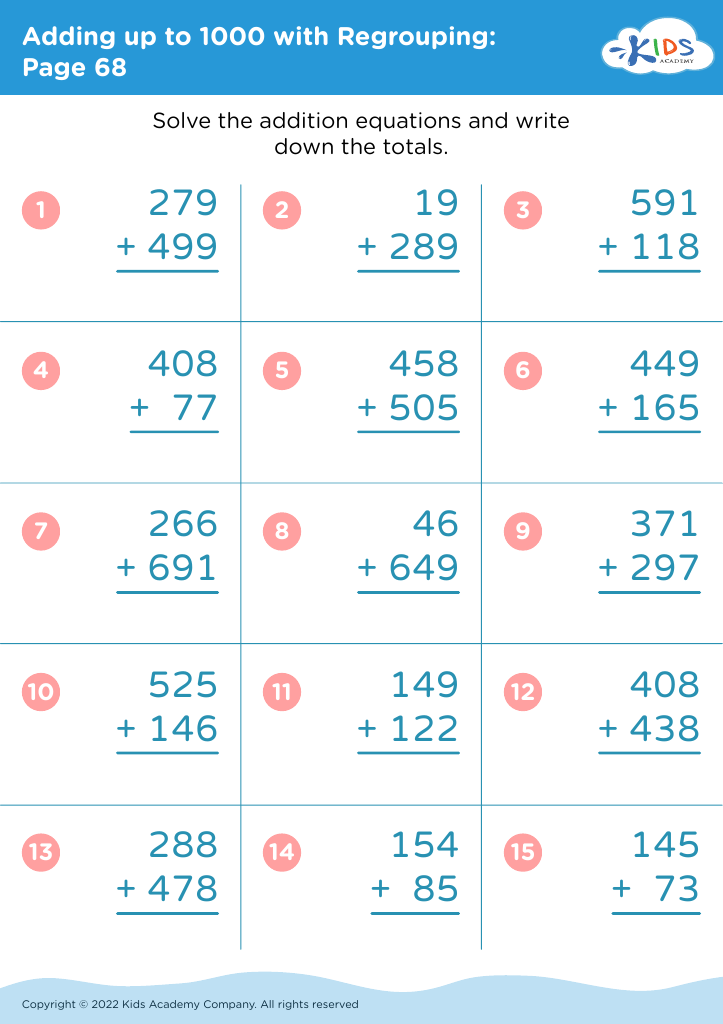Number Recognition Adding up to 1000 with Regrouping Worksheets for Ages 6-8
11 filtered results
-
From - To
Boost your child's number recognition skills with our engaging worksheets designed for ages 6-8. Our "Number Recognition: Adding Up to 1000 with Regrouping" series focuses on helping young learners grasp fundamental math concepts through hands-on practice. These worksheets encourage kids to identify, understand, and manipulate numbers up to 1000 while mastering regrouping techniques. Each engaging activity promotes critical thinking and problem-solving skills, ensuring a solid mathematical foundation. Perfect for classroom or home use, these worksheets make learning enjoyable and effective. Watch your child's confidence grow as they excel in number recognition and addition! Get started on their math journey today!
Number recognition and the ability to add up to 1000 with regrouping are crucial skills for children aged 6-8, serving as foundational elements in their mathematical development. Parents and teachers should care about these skills for several reasons.
Firstly, number recognition aids in the development of numeracy skills, allowing children to understand the relationships between numbers, which is essential for effective problem-solving. Recognizing numbers means that children can confidently engage in mathematical activities, from simple counting to more complex addition and subtraction.
Secondly, mastering addition with regrouping not only strengthens children's ability to perform calculations accurately but also builds their confidence in managing larger numbers. This skill is essential for daily life and future academic pursuits. When children learn how to regroup, they understand concepts like carrying over, which connects to place value—a key concept for everyday mathematics.
Lastly, the skills developed through exercises like adding up to 1000 lay the groundwork for higher-level mathematics, fostering critical thinking and analytical abilities. By emphasizing these skills, parents and teachers help children navigate a world increasingly reliant on math, cultivating a love for learning and building confidence in their capabilities. Efficient mastering of these foundational skills ultimately promotes greater academic success and lifelong learning.





















